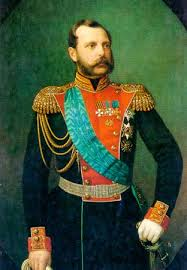Well, in my opinion, no, not entirely, but when is a historical question's answer a yes?!
In fact the revolutions of 1848, also called the "Spring of Nations" were caused by a conjunction of reasons and political unrest had begun before the 1840s. The "success" of the Paris upheaval in February 1848, when the Second Republic of France was created, was what triggered all of these revolutions, including some in Sicily, the Germanic States, the Papal States and Austria. Although many European governors saw flight, surrender or compromise as the safest course, although individuals such as Louis-Philippe and Metternich abandoned their roles, most governing classes survived. Despite changing Europe in various ways, there was little lasting change brought about. These few changes involved: Prussia and Piedmont getting constitutions, feudal obligations abolished in parts of eastern Europe. A question many ask is "who actually gained from these revolts; the governing conservatives or revolutionary liberal parties?". In the short-term, it was surely the first, but it is easy to say that these revolutions educated Europeans politically, benefitting them in the long term (within 25 years, both Italian and German nationalist ideas had been realised).
Between 1845 and 1847, Europe suffered from a major socio-economic crisis. As a "sub-crises" of this, there was the agricultural issue and the industrial one, both linked and both extremely important.
The Agricultural Problems
European agriculture suffered from the failure of the potato blight in 1845, a severe issue. Its most dramatic impact was in Ireland, where up to 1 million lives were lost, however, it also hit the rest of Europe, causing hunger and suffering across the continent. Then, in 1846, hot and dry caused a bad harvest. As failures continued, it became impossible to make a good harvest out of the previous harvest's surplus. This caused prices to go up throughout Europe, and, inter-country trade was near impossible, owing to the lack of railways.
Facts: In Hamburg the price of wheat rose 51.8% between 1841 and 1847, 70% of the increase occurring between 1845 and 1847. In Switzerland, the price of rye doubled in the same 2 years, and bread prices doubled in the single year 1846-47. These are only two examples in two states!
The Industrial Problems
This was partly owing to overproduction. As manufacturers realised that they had saturated the markets, they reduced production, causing decrease of wages and unemployment. The crisis was worsened by factory production, which the skilled craftsmen and artisans thought were the cause of their problems. As there was no longer a demand for goods in the countryside, the factories were making less money, so unemployment and wage reduction occurred, therefore creating an even lesser demand for goods. This caused widespread hardship. At the same time, many middle class citizens were not finding "suitable" jobs, such as teaching, lawyer and civil servants, making them want change in the government. The two groups, workers and middle class, came together to cause change, however, they both had very different goals: the middle class wanted a more liberal government (such as a constitution where there wasn't one or freedom of speech, etc.), whereas the working classes wanted better working conditions, higher wages and food.
Historian Ernest Labrousse wrote:
'the wave of high prices had spread over the country like a flood, and, like a receding tide, it left behind it a ruined population.'
































